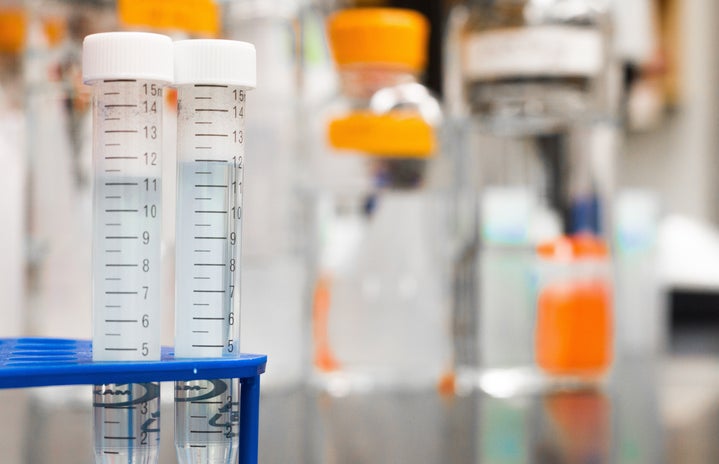According to Governor Ron DeSantis, next in line for the COVID-19 vaccine will be K-12 teachers, police officers and firefighters over the age of 50.
“I’ll be signing an executive order later today to expand vaccine eligibility to all sworn law enforcement officers age 50 and above, all firefighters age 50 and above, and all K-12 school personnel age 50 and above,” said DeSantis at a press conference on Mar. 1.
The executive order was signed later that day and stated that the changes in the eligibility for the vaccine would go into effect on Mar. 3.
This will be the first time since December that the list of those eligible for the vaccine will be expanded. DeSantis credited the expansion to the Emergency Use Authorization for the single-dose Johnson & Johnson vaccine, which was approved by the Food and Drug Administration on Feb. 28.
“We don’t know exactly how much, but tentatively, the numbers that we’re looking at for Johnson and Johnson shipment to Florida this week is 175,000 doses. Now, that has not been confirmed yet, but we hope it will be very, very soon,” he said.
He also said that the shipment should be able to vaccinate all newly eligible Floridians.
According to the Tampa Bay Times, the state of Florida has around 141,000 teachers and school employees in the 50 to 65 age range. The same article stated that Florida has more than 13,000 sworn law enforcement officers in that same age range. This expansion, however, will not include corrections officers.
This new expansion to the vaccine eligibility comes after DeSantis signed a different executive order on Feb. 26 allowing those who are under the age of 65 who are deemed extremely vulnerable to COVID-19 to get vaccinated.
So, as of right now, who’s eligible to get vaccinated? After these two expansions, here’s who’s included:
-
Long-term facility residents and staff
-
People aged 65 and older
-
Health care workers with direct patient contact
-
People deemed extremely vulnerable to COVID-19 by licensed physicians
-
K-12 school employees aged 50 and older
-
Sworn law enforcement officers aged 50 and older
-
Firefighters aged 50 and older
Sophomore Lauren Petrides, 20, has both of her parents working in the same elementary school in Palm Beach County. Her father is a fifth-grade teacher who does a combination of face-to-face and online instruction. Her mother is a guidance counselor who teaches some lessons in students’ classrooms and has individual meetings with students from time to time.
“I was definitely worried about my parents going to work in-person at their school without the vaccine because of how many people there would be in one building and how they had to interact with many people during the day because of their jobs,” said the communication sciences and disorders major.
She also shared that she was particularly worried about her father, who has some respiratory issues and is in an enclosed environment that allows germs to spread more easily. Also, Petrides herself is immunocompromised, so she was concerned that her parents would unknowingly bring the virus home and pass it on to her, causing her to become extremely sick.
“Now that school employees are allowed to get vaccinated, I am absolutely thrilled,” she said. “Teachers deserve the opportunity to get vaccinated for all the hard work they do and, getting that vaccine will allow them to be and feel a lot safer while they work. Educators already go through enough difficulties at their jobs without having COVID-19 to worry about.”
She also said that her parents were able to get vaccinated recently for health reasons relating to the expansion from Feb. 26. She said that they weren’t skeptical because the vaccine was endorsed by the CDC and Dr. Anthony Fauci. They also didn’t have any major reactions to it, just the usual injection site soreness and fatigue.
“They were both so excited and relieved to get the vaccine and get a small step towards achieving normalcy.”
As of Mar. 2, Florida is ranked 32 out of 50 in the ranking of states by percentage of COVID-19 vaccines administered. The state has had around 6.3 million doses distributed to it and has administered just over 5 million of those vaccines, putting the state at nearly 80% of distributed vaccines that have been administered.
This comes after Florida hit an important milestone in its “Seniors First” vaccination plan. On Feb. 26, more than half of all seniors in the state had received at least one dose of the vaccine.
Following all of the state news, President Joe Biden said on Mar. 2 that the United States will have enough vaccines for every adult to get vaccinated by the end of May. This puts a huge acceleration in the Biden administration’s vaccination timeline, with the initial goal being the end of July.
Biden also said that he is going to push states to prioritize teachers in their vaccination plans, which aligns with his emphasis on getting students back to in-person instruction.
“Let’s treat in-person learning like an essential service that it is,” he said, also noting that he hopes to have every school employee receive at least their first dose of the vaccine by the end of March.
While Biden is remaining hopeful about the vaccines and their distribution, he made it clear that the U.S. would not be returning to “normal” in the near future.
“There is light at the end of the tunnel,” he said, “but we cannot let our guard down now to ensure victory is inevitable, we can’t assume that. We must remain vigilant, act fast and aggressively and look out for one another. That’s how we’re going to get ahead of this virus, get our economy going again and get back to our loved ones.”
Petrides shared similar sentiments with Biden, saying that regardless of the vaccine it is so important that people continue to keep others in mind and wear a mask.
“You never know who you may come into contact with in public and potentially pass the virus to, which could then be passed onto other people they interact with,” she said. “It’s so important to think beyond any single interaction with someone.


